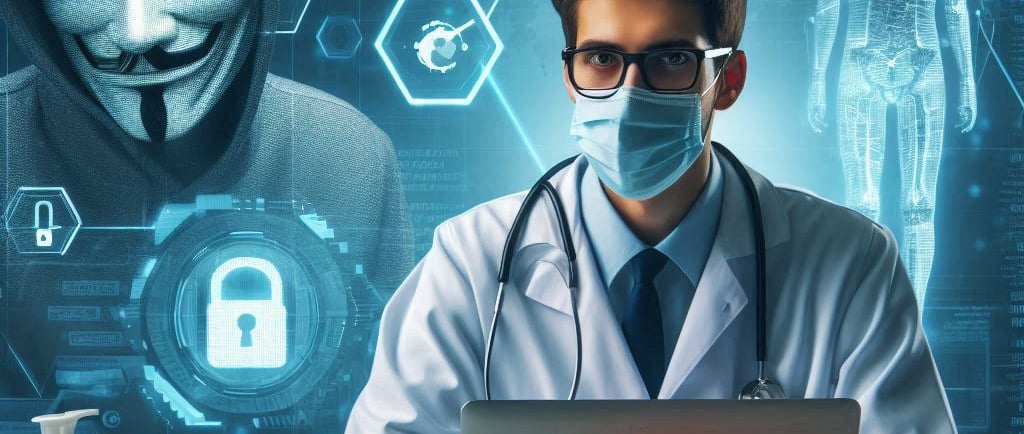Cyber One Information Technology "Your IT Partner For Growth and Success" Call 407-394-1000 to schedule a FREE BUSINESS EVALUATION
The Growing Cybersecurity Threat to Healthcare Providers
**The Growing Cybersecurity Threat to Healthcare Providers**
By Richard Medina, Certified Ethical Hacker
3/26/20253 min read


The Growing Cybersecurity Threat to Healthcare Providers
Medical practices, hospitals, pharmacies, and healthcare providers are increasingly becoming prime targets for cybercriminals due to the vast amounts of sensitive patient data they handle daily. The healthcare industry has witnessed a significant surge in cyber threats, including ransomware attacks, phishing scams, and data breaches. Disruptions caused by these cyber incidents can lead to financial loss, reputational damage, and compromised patient care.
Recent Cyber Attacks in the Healthcare Industry
Several high-profile cyber attacks have underscored the vulnerabilities within the healthcare sector:
Change Healthcare Ransomware Attack (February 2024): A ransomware attack on Change Healthcare disrupted services across hospitals, practices, pharmacies, and medical billing companies in the U.S., affecting over 100 million patients' personal data and causing significant healthcare disruptions. UnitedHealth Group's CEO, Andrew Witty, made the decision to pay a ransom of $22 million in Bitcoin to the hackers. Despite this payment, the hackers executed an "exit scam," taking the ransom without returning or deleting the stolen data.
OnePoint Patient Care Breach: This hospice-dedicated pharmacy and pharmacy benefit manager fell victim to an INC Ransom ransomware attack, initially affecting 795,916 individuals. The total was later increased to 1,741,152 individuals when more affected individuals were discovered.
American Associated Pharmacies Ransomware Attack: Hackers accessed over 1.4 terabytes of data, encrypted the files, and demanded $1.3 million to decrypt the data.
Why Are Healthcare Providers at Risk?
Valuable Patient Data: Medical records contain personal information, including Social Security numbers, insurance details, and medical histories, making them highly valuable on the black market.
Regulatory Compliance Challenges: Healthcare providers must adhere to strict compliance standards like HIPAA (Health Insurance Portability and Accountability Act). Failure to protect patient data can lead to severe penalties and legal consequences.
Outdated Systems and Software: Many hospitals and medical practices rely on legacy systems that lack modern security features, leaving them vulnerable to cyberattacks.
High-Risk Online Transactions: Pharmacies and healthcare providers process online prescriptions, insurance claims, and financial transactions, making them susceptible to fraud and hacking attempts.
Lack of Cybersecurity Awareness: Staff members who are not trained in cybersecurity best practices can inadvertently fall victim to phishing attacks or social engineering scams.
Common Cyber Threats Facing Healthcare Providers
Ransomware Attacks: Cybercriminals use malicious software to encrypt files and demand payment for their release, often crippling healthcare operations.
Phishing Scams: Fraudulent emails trick employees into clicking malicious links or providing sensitive information.
Insider Threats: Employees or contractors with access to systems may intentionally or accidentally expose data.
Data Breaches: Hackers infiltrate networks to steal confidential patient records.
IoT Device Vulnerabilities: Medical devices connected to the internet, such as smart insulin pumps or heart monitors, can be exploited if not properly secured.
How to Protect Healthcare Providers from Cyber Attacks
Implement Strong Access Controls
Use multi-factor authentication (MFA) for accessing systems and sensitive data.
Limit access to patient records based on job roles.
Regularly Update Software and Systems
Ensure all systems, including electronic health records (EHR) and point-of-sale (POS) software, are updated with the latest security patches.
Replace outdated hardware and operating systems.
Train Employees on Cybersecurity Best Practices
Conduct regular training on identifying phishing emails and suspicious activities.
Establish clear policies on handling sensitive data and reporting cyber threats.
Deploy Advanced Cybersecurity Solutions
Utilize endpoint protection, firewalls, and intrusion detection systems.
Implement AI-driven threat detection and response solutions to identify potential threats in real-time.
Backup Critical Data
Maintain encrypted, offsite backups to ensure quick recovery in case of ransomware attacks.
Regularly test backup restoration procedures.
Conduct Regular Security Assessments
Perform penetration testing to identify vulnerabilities before hackers do.
Work with cybersecurity professionals to assess and strengthen security postures.
Ensure Compliance with Regulations
Follow HIPAA guidelines for data protection and breach response.
Regularly review and update security policies to align with industry standards.
Conclusion
Hospitals, medical practices, pharmacies, and healthcare providers are high-value targets for cybercriminals due to the sensitive data they handle. By proactively implementing strong cybersecurity measures, healthcare organizations can safeguard patient information, maintain compliance, and prevent costly cyber incidents. Partnering with cybersecurity experts can provide added protection and ensure resilience against evolving cyber threats.
Staying vigilant, investing in cybersecurity training, and leveraging advanced security technologies are essential steps in protecting healthcare providers from cyber risks. The cost of inaction can be far greater than the investment in cybersecurity preparedness.
At Cyber One Information Technology, we specialize in helping small and medium-sized businesses enhance their cybersecurity defenses. Contact us today to assess your risks and secure your business against the growing threat of cyberattacks.
For more info visit www.CyberOneInfo.com
Contact Richard Medina, Certified Ethical Hacker https://www.linkedin.com/in/richme/
